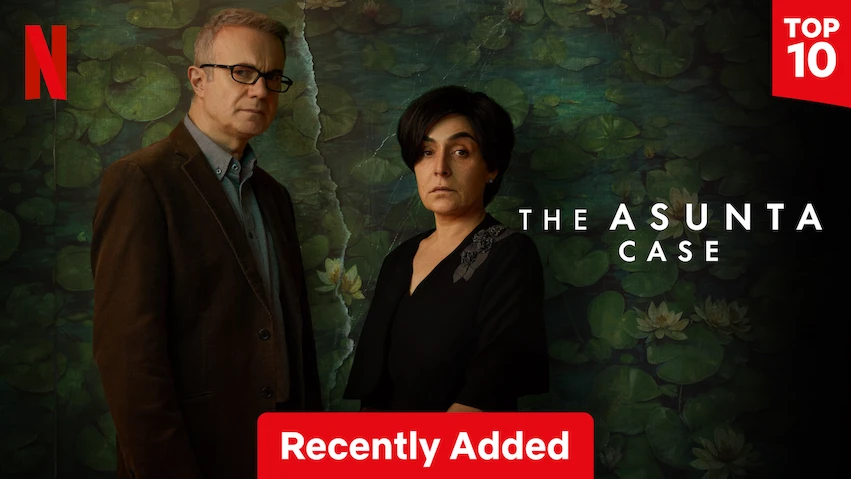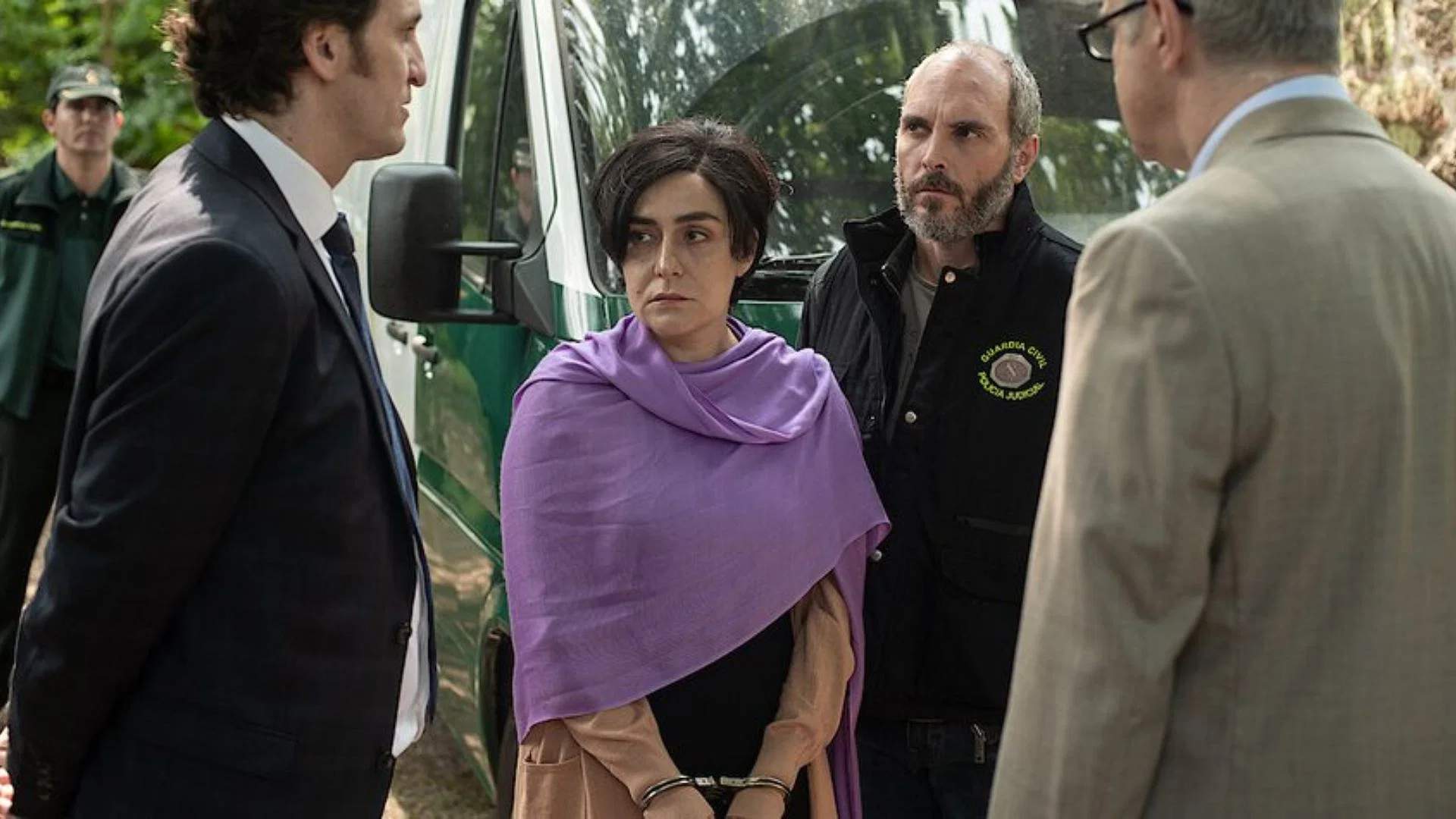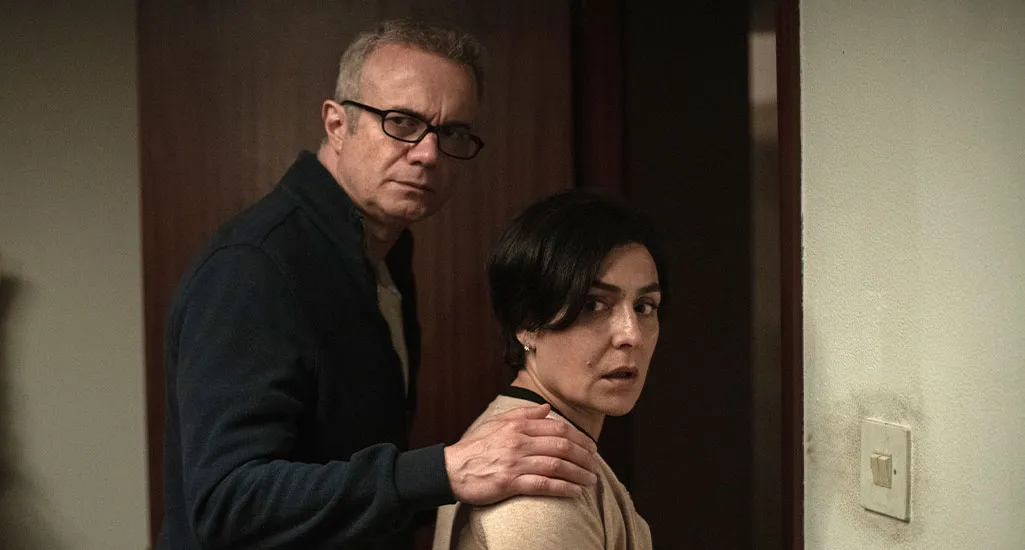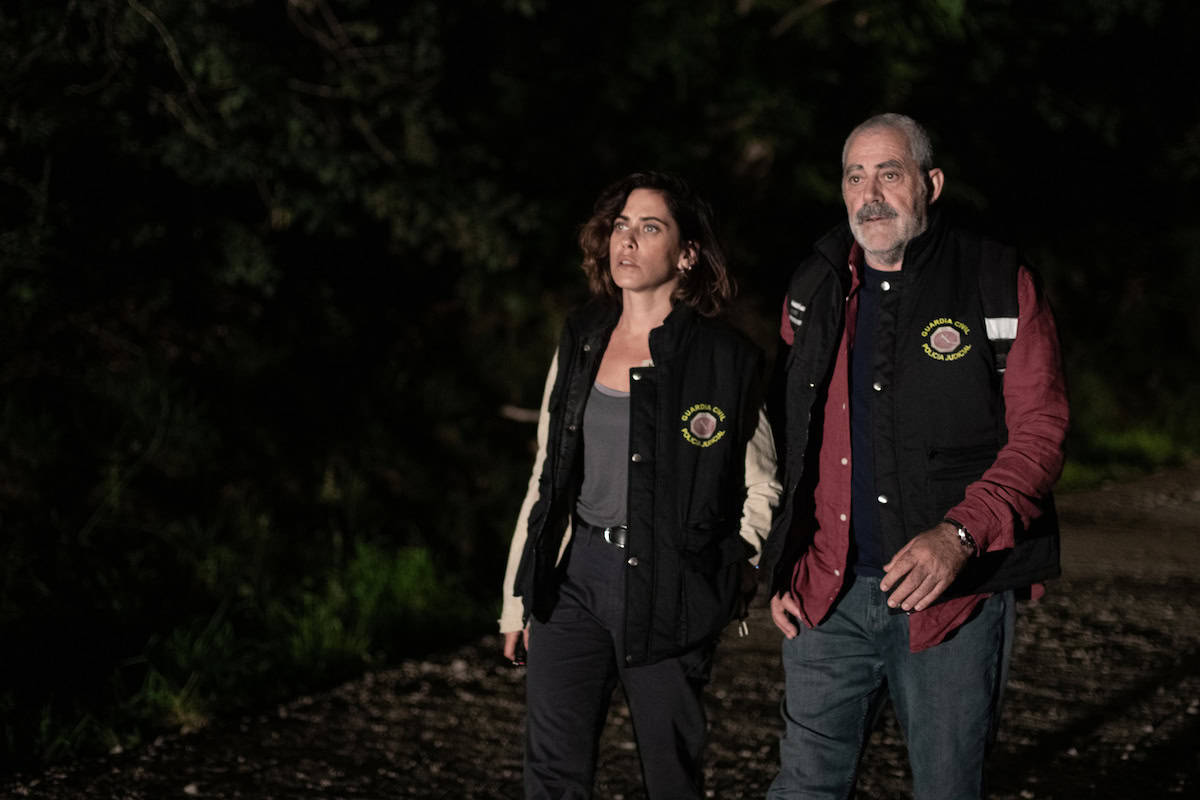The Asunta Case (2024) Review – A Gross Retelling of Tragedy
Netflix’s “The Asunta Case” struggles to say why it exists outside of profit and sensationalism.

Spoiler Alert: This summary and review contains spoilers.
Additionally, some images and text may include affiliate links, meaning we may earn a commission or receive products if you make a purchase.
“The Asunta Case” Plot Summary
The Netflix crime series “The Asunta Case” is based on the true story of a child’s murder. The Spanish-language thriller is written by Ramón Campos and tells a dramatic version of the police investigation into Asunta’s murder and the mystery surrounding her parents. The different storytelling devices and use of early 2000s cameras make “The Asunta Case” compelling, but the retelling of this gruesome tragedy can’t seem to find a reason to exist outside of gross entertainment value.
Set in Spain, “The Asunta Case” weaves between past and present-day events that led to the breakdown of Rosario’s (Candela Peña) and Alfonso’s (Tristan Ulloa) marriage and the murder of their daughter. Detectives Christina (Maria Leon) and Rios (Carlos Blanco) are on the case, trying to piece together what happened the night Asunta went missing. A determined judge (Javier Gutierrez) is adamant that Rosario and Alfonso are responsible for Asunta’s murder. Multiple mysteries shroud Rosario and Alfonso’s separation and the events that took place the day their daughter went missing. As media pressure increases and the public demands answers, Asunta’s murder becomes more murky than ever.

“The Asunta Case” details events that happened before Asunta’s disappearance, the investigation, and the trial that took place afterwards. The first episodes play out like a mystery about who’s responsible for Asunta’s murder, but anyone familiar with the case is given a grim reminder of how events unfolded in the media too. While “The Asunta Case” may want to say something about media consumption or the deception of a happy household, these are common messages in any child disappearance story. “The Asunta Case” just adds to the noise of crime stories, and, potentially worse, it tries to make a child’s murder into entertainment.
Content Information
“The Asunta Case” is rated TV-MA for child abuse, profanity, nudity, smoking, and suicide.
“The Asunta Case” General Information
| Network | Netflix |
| Genre(s) | Crime
Non-English (Spanish) |
| Noted Characters | |
| Rosario | Candela Peña |
| Alfonso | Tristan Ulloa |
| Christina | Maria Leon |
| Rios | Carlos Blanco |
| Malvar | Javier Gutierrez |
Renewal Status: Ended
Directory: (Series Page | Character Guide)
“The Asunta Case” Review
Our Rating: Mixed

Let us know your thoughts in the comments:
- What did you think of “The Asunta Case?” What makes it a good or forgettable crime story to you?
- Should true crime stories be made into entertainment? If so, why?
On The Fence
Repetitive Dialogue Makes Majority of Characters Grating
Rosario is meant to be a lawyer, but she spends each episode confused and clueless about what’s happening to her. Malvar is supposed to be a judge, but his treatment of his father and the case all go in stubborn circles. Characters spend so much time repeating themselves that scenes in “The Asunta Case” feel like deja vu. What’s worse is that if they’re meant to be based on real people, the series has reduced them to one-dimensional caricatures.
Subplots Feel Disjointed and Distracting
“The Asunta Case” spends half of its time not focusing on the Asunta case. In place of a detailed investigation, we get the backstory of three investigators on the case. The backstories bring the investigation to a halt and sometimes feel forced and out of place, just to provide more filler within each episode.

Why “The Asunta Case” Exists
When a film or show recreates a horrific moment in history, we should ask ourselves why. What is it that the media is trying to convey, or what can we learn from this? I’m struggling to see what “The Asunta Case” is trying to say besides shock value. Episodes end on cliffhangers, people and conflicts are dramatized to an embarrassing degree, and there’s nothing this show is saying that hasn’t been said in countless other crime adaptations. There’s simply no need to recreate the murder of a child.
Good If You Like
- True crime stories
Recommendations
If you like this show, we recommend:
Check out our TV series page for our latest recaps, reviews, and recommendations.
TV Shows We’re Covering This Season
Images used for editorial and commentary purposes. All rights remain with their respective copyright holders.


